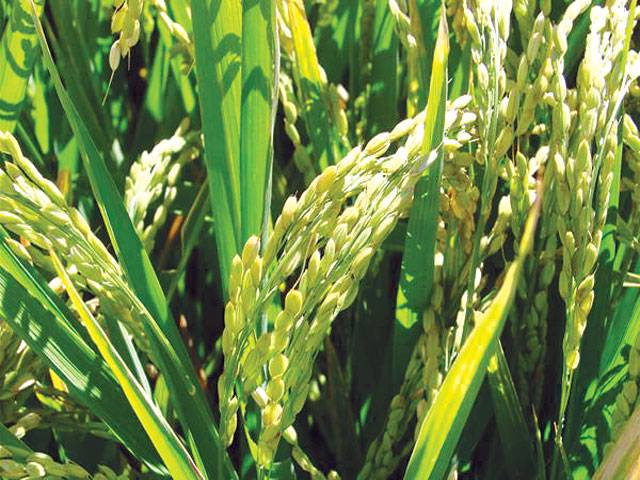LAHORE – Public sector institutes like Rice Research Institutes of Kala Shah Kaku and Dokri have failed to develop new successful and popular hybrid rice varieties during the last several decades of their existence.
Currently, hybrid rice is cultivated on an area of approximately 500,000 acres in the country. In Sindh, hybrid rice is cultivated on vast areas of land in Larkana, Jacobabad, Kandhkot, Shikarpur, Thul, Kashmore, Badin, Tando Muhammad Khan, Golarchi, Suajawal and Thatta etc.; in Balochistan, hybrid rice is cultivated in the vast areas of Jafferabad, Nasirabad and Usta Muhammad etc.; in Punjab, it is being cultivated in the areas of Multan, Sadiqabad, Rahim Yar Khan, Dera Ghazi Khan and Bhawalpur etc.
The reason for the popularity of hybrid rice among the farmers is that an average yield of around 80 maunds per acre is usually achieved by them and in some cases, progressive growers even achieve yields as high as 110 to 120 maunds per acre
China, by promoting hybrid rice cultivation in the country, increased its national average yield per hectare from 3.5 to 6.2 Mt/ha, within a relatively short span of five to six years, where 15 million hectare or about 50 per cent of its area is under hybrid rice cultivation. In Pakistan the national yield per hectare of rice is still 2.387 Mt/ha, which is one of the lowest in the world.
As pointed out by REAP in the past, after introduction of IRRI-6 of Philippines, in the country, the variety has now almost been degenerated.
“The need of the hour is that the private sector should be encouraged in the introduction of new rice technologies in the country, especially hybrid rice,’ said the Rice Exporters Association of Pakistan (REAP). The association has appreciated the fact that cultivation of hybrid rice has been instrumental in increasing the per-acre-yield of rice in the country and increasing the exportable surplus.
The REAP has urged the federal and provincial governments to extend their full support to the private sector, in the promotion of hybrid rice cultivation in the country and also ensure the participation of private sector in management and control of the public sector rice research institutes.
Friday, April 19, 2024
Rice research institutes fail to deliver

Fire erupts in house, no casualties reported
April 19, 2024
Minister chairs meeting on modern farming
April 19, 2024
PPP leader Arbab appears before accountability court
April 19, 2024
Weapons, drugs seized in Rawalpindi raids
April 19, 2024
CAA holds e-katcheri, addresses passengers’ concerns
April 19, 2024
Hepatitis Challenge
April 18, 2024
IMF Predictions
April 18, 2024
Wheat War
April 18, 2024
Rail Revival
April 17, 2024
Addressing Climate Change
April 17, 2024
Justice denied
April 18, 2024
AI dilemmas unveiled
April 18, 2024
Tax tangle
April 18, 2024
Workforce inequality
April 17, 2024
New partnerships
April 17, 2024
ePaper - Nawaiwaqt
Advertisement
Nawaiwaqt Group | Copyright © 2024





